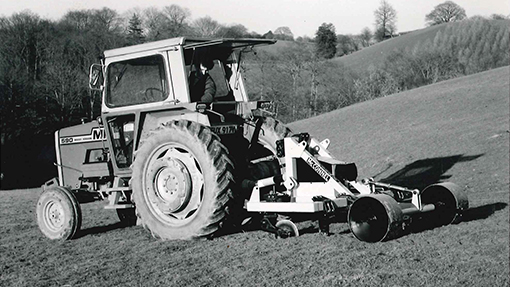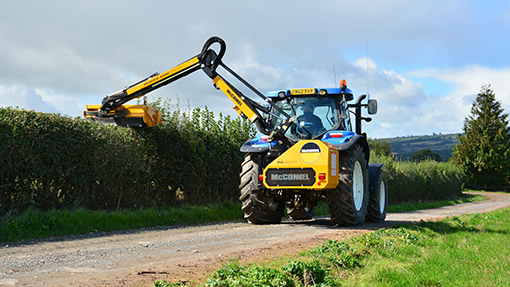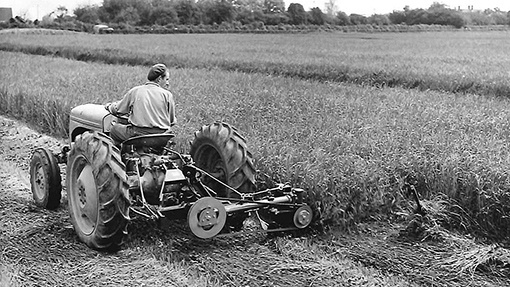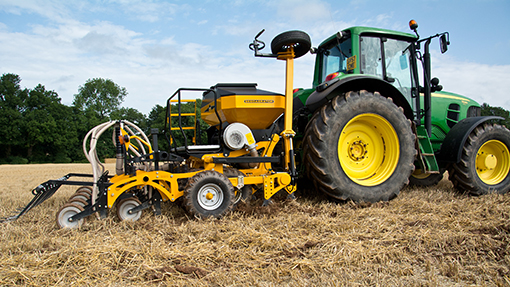Best of British: The story of McConnel

Many of Britain’s long established farm machinery manufacturers were started by a farmer or a blacksmith, and it was a farmer who started the McConnel company in the 1935.
Freddie McConnel’s talent for developing a varied range of machinery ideas began with a rotary engine in 1928; four years later he patented a fruit canning machine and a prototype hop picker followed in 1934. None of these reached the production stage but success came in 1935 with an apple grader he designed, and in the same year he established FW McConnel , now called McConnel Ltd., to develop his ideas commercially.
An improved version of his hop picking machine was available in 1937. He also made trailers which achieved special success in 1939 when his four-year-old company won a contract to supply them to the army during World War 2.
More from our Best of British series
The end of the war in 1945 brought a big demand for farm equipment including machines to work with tractors that were replacing thousands of farm horses. Freddie McConnel’s postwar products included the world’s first tractor-mounted hedgecutter, starting a long-term success story for McConnel which, more than 60 years later, remains the world’s biggest manufacturer of this type of equipment.
His first hedgecutter in 1948 was carried on a steel girder framework mounted just in front of the driver with a cutterbar powered by a belt drive from a small petrol engine. It was not a user-friendly design and an improved version in 1951 was mounted on a front-end loader.
Since then McConnel has produced a number of innovations including the new TwinCut flail head, the first with two rotors. The company’s vegetation cutting expertise has also produced a range of rotary and flail mowers and toppers for farm and amenity work, including the recently introduced Robo series self-propelled mowers for remote control operation.
Freddie McConnel’s policy of offering varied products continued with the 1940s launch of a sawbench on wheels. The 1950s brought a novel grain harvesting machine that did not go into production, followed by a windrower and then the Power Arm Universal or PAU in 1953. The PAU was rear mounted and was offered with 12 different powered attachments including a cement mixer, a cutterbar mower and a ditch cleaning tool.
More variety arrived in 1962 with a rear-mounted, slew action trenching and ditching machine. The Tail Slave rear-mounted forklift was a 1969 success and production of the Trantor high speed tractor was transferred to the McConnel factory in the 1970s. A 1973 self-propelled sugar cane harvester became the company’s first export-only product, and 1975 brought the Balepacker that made packs of 20 conventional bales offering big bale handling benefits.
Vegetation control equipment tops the current McConnel sales charts with cultivation machinery taking second place. Cultivation success started in 1977 with the first of the Shakaerator subsoilers equipped with vibrating legs to boost output and soil loosening efficiency without increasing the power requirement.
There is now a range of Shakaerators, including a special grassland version, and the vibrating tine principle is also used in the McConnel Vibratilth cultivator.
The tillage range also includes the Discaerator tine and disc combination for stubble cultivation or seedbed preparation plus the new Seedaerator drill designed for the latest strip till crop establishment technology.
Company Factfile
Company: McConnel Ltd
HQ: Temeside Works, Ludlow, Shropshire SY8 1JL
Owned by: Alamo Group
Employees: 160
Principal Products: hedge cutters and other vegetation control machinery, cultivation machinery




